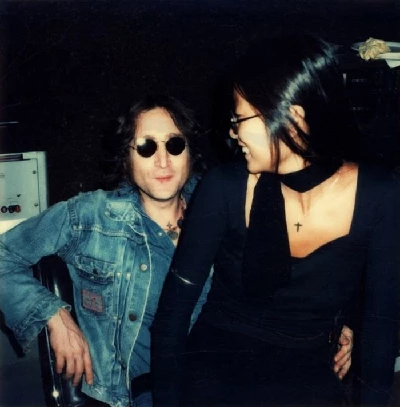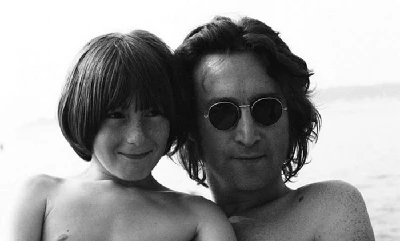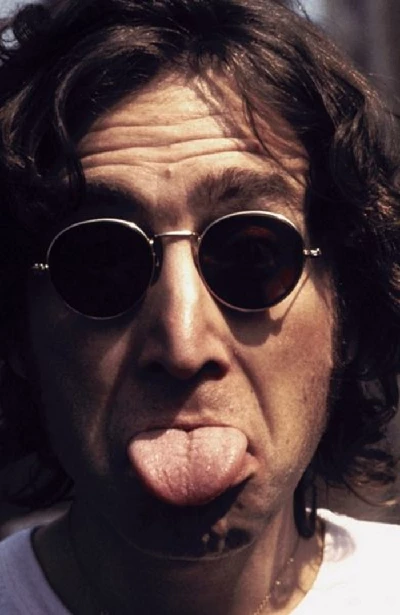published: 23 /
12 /
2017

May Pang recalls her rise as a music executive, explores the art of song plugging and demystifies her relationship with John Lennon, and more with Lisa Torem in an exclusive two-part interview.
Article
May Pang grew up in New York’s Spanish Harlem, riveted by the palpable sounds of American soul and doo-wop. At 18, she confidently walked into the building which housed ABKCO Industries, the management company for the Beatles’ company Apple Corps., (which she had been unaware of at the time), and soon found herself working with Allen Klein (manager for John Lennon, George Harrison and Ringo Starr – and former manager of the Rolling Stones).
Soaking up everything she possibly could, she began forging strong relationships and would eventually develop a reputation as one of the first successful female executives in the American music industry.
May promotes her current and archival photographs and books, an original line of Feng Shui jewelry, humanitarian projects and more through her website www.maypang.com and on her new blog ‘May in Manhattan’, which she describes as “a window into my time in this great city and my travels around the world,” she features links to Internet radio show ‘Dinner Specials’, which she co-hosts with Cynthia Neilson.
May is a bright, articulate woman with multiple talents. Whilst her relationship with John Lennon has frequently spurred press, she is a phenomenal person in her own right. Pennyblackmusic appreciates the opportunity to feature May in an in-depth format.
We began by talking about what she learned in those early years and her strong work ethic.
“I had to learn licensing; because I was in the publishing and royalties end the majority of the time. Wherever they put me, I wanted to know how things worked. From PR to putting the actual album together--the process; the whole production of putting out an album.
If kids today only knew what it was like back, then… You had an album cover, you had liner notes and the production of making vinyl—it was fascinating, to me, because music, I’ve always said, saved my life when I was a child. When there was no one to turn to music moved my soul to a better place.
When you get out in the world to work, you want to show that you can do the job; why would you not want to do your best? That’s how you keep a job, as well, and that’s something you have to think about. If you do sloppy work, no one is going to keep you, no matter what job it is.
May’s vivacious personality and attention to detail soon garnered the attention of John Lennon and Yoko Ono, who hired her to be their personal assistant and eventually, production coordinator. After three years, and still in her early twenties, she found herself one day in an awkward position with Ono. The couple were not getting along and Ono essentially recommended that May begin dating John. May told Ono that she was not interested. But once pursued sincerely by Lennon himself, and sanctioned by Ono (who would call them daily), they began an 18-month relationship, which would often be referenced as the “Lost Weekend” (ironically, the name of a classic American film).
What if a young person that she knew now found him or herself in a similar predicament in 2017? What advice would she give?
“They would have to follow what it means to them. Was the job important? How did they feel about the boss doing that? And in this day and age, if a boss came to you and said that, most of the time, and it depends on who it is because the entertainment business is not the same as the corporate world because there’s always that fascination, the gasps, the ‘There’s that person.’
I would have to ask, ‘Do you like this person in that way?’ Because everybody is different. I would not say, ‘Oh, you should go run with it.’ It wasn’t until John started chasing after me that I said, ‘What? Why would he want me?’ But he did, and that’s something different.
But I would not say, ‘Go out there and follow whatever the boss says.’ I was also prepared to leave, so there’s a whole lot of things that go with it. There are a lot of parameters involved in making that decision, especially if you like your job and you’re hoping that it doesn’t complicate the situation. But how can it not? Having worked for them for three years, it came out of left field. It wasn’t something on my mind.”
During her extended relationship with Lennon, he recorded several albums, one, ‘Walls and Bridges’ received critical acclaim, and led to Ms. Pang’s RIAA Gold Album Award in 1974.
The album was a stunner. Lennon’s voice was luminous. How would May describe Lennon’s emotional state and creative process during the making of this album?
“He wrote songs about what was going on around him, and that’s what most writers do, they write about their experiences and what’s happening in their life. I was very happy that he wrote this album and that he wanted to go out and work. He had pieces of paper where he had one line or something, and an idea and they all came together. He managed to complete this album in eight weeks from start to finish. He was so proud. He said, ‘I did it in eight weeks!’
And, yes, the climate of him being back with his friends and his son, I think helped him. It renewed his interest. It was the first and only time in his lifetime that he had a number one single -- on a number one album, ‘Whatever Gets You Through the Night,’ (“Walls and Bridges, 1974). He produced it himself without any help. He knew what he wanted. He didn’t need Phil Spector (Producer Spector would trigger a cyclone of events during the making of the album, ‘Rock ‘n’ Roll’, including running off with the master tapes).
“John heard everything he wanted in his head, down to each note of the orchestral arrangements. Kenny Ascher did a great job, too. And of course Roy Cicala, engineer extraordinaire. I’m so proud of this album and appreciate that John acknowledged the part I played in its production. He relied on my ears and always asked my opinion. And then to have me sing background vocals and whisper his name on ‘#9 Dream’. And, of course, the song he wrote for me, (‘Surprise, Surprise’) …
The first time that John and I got together, the next morning, he said, ‘Come over here’ and I said ‘Why?’ and he sat me down on the floor and picked up his guitar and he just sang two lines that he had written and that was the beginning of ‘Surprise Surprise’”.
When I looked up ‘# 9 Dream’ on YouTube, fans were struggling to decipher the meaning of Lennon’s angelic refrain: ‘Ah, bawakawa pousse pousse.’
Does May know the secret behind this mystical phrase?
(LAUGHS) “Those words, those sounds, came to him in a dream. It had no meaning, he just thought it worked on a musical level. And here we are talking about it over 40 years later, so he was right.”
Lennon struck me as a songwriter on high-alert, snatching images from dreams, newspapers and overheard conversations. What was it like, living day to day with him?
“We had a big love and passion for old Rock ‘N’ Roll so our conversations about music were very lively. He would throw stuff out at me and I would say, ‘Yeah, but, how about this?’ And he was very surprised that I knew a lot about music, considering we were ten years apart, that I would know a lot about some of the American artists, and I used to tell him, ‘I got to listen to this music first hand, and you got to listen to it second,’ and so I was aware, and because of my love for this music, I was already there with him, so we were on the same wave length.
We used to talk about music even before we were ‘together’. I’d gone to oldies shows and he’d say, ‘Who did you see?’ and, ‘Oh, my god, how was it?’ That was a big help in the relationship. He didn’t have to explain anything to me.
It appears that May’s musical tastes run the gamut, everything from Judas Priest to Bob Marley.
“When you’re in that zone, and working as a song plugger, I had to work with different groups. They were not necessarily all my taste, but you get a sense of what somebody is looking for. Judas Priest was a very big name band. They were looking for that one song. Can you imagine? You have all of these songs. They’re all going, ‘My song. My song. I think I have the right one for you!’ And you have to make that judgment call—this song will fit with this band. And you don’t have a lot of time to do this stuff because if you keep sending the wrong songs to an act, they’re not going to listen to you. ‘There goes that one again!’ (Laughs).
I was very conscious and I would listen. I would also listen to some of my friends and let them give me their input as well. ‘This person is looking for a song. What do you think?’ And I listened to my writers and I loved some of the songs that would come back. The song that I gave to Judas Priest was by Bob Halligan, Jr. who is still a friend to this day. He’s a adjunct professor up at Syracuse University. He teaches a Beatles class.
He’d said, ‘Would you come up and speak about the industry?’ I said, ‘Of course, I would.’ He was a pop Christian writer back in the early ‘80s. I said, ‘Listen, Bob. I can’t get your songs out there. There are not many people who would want the pop Christian music. I can’t plug that so easily.’
So he said, ‘What do you want?’ And at that point, Foreigner had just come out. It was not heavy rock; it was in the middle. ‘It Feels Like the First Time,’ whatever you call that. I said, ‘Now if we could get that, we could have a shot, but it could go either way.’ Just getting to that middle ground where people can hear it.
He’s so prolific, and he came back with a song. He did it on piano and I could hear it with a full band playing it. You’ve got to have that creativity, too, in your head. So I’m hearing it, and I said, ‘Let’s demo it.’ It was great, but I said I would like a little bit more of this and that, you know, and the first person that actually put it on hold, so that nobody else could record it, was John Waite, and then he said he wanted to change some of the lyrics. I got John and Bob together and finally I said that it was taking too long, and we’re taking it off hold. The song was too good to just leave it.
So, I found out that Judas Priest was looking for a song. A one-in-a thousand shot to get that song in… And I got the call and they said they loved the song. And what was great was that it was the only outside album cut and, of the songs we sent them, they wanted to do all of them, but they didn’t have enough room.
Bob is such a prolific writer. So, my joke is, I turned a pop Christian writer into a heavy metal writer and got him his first platinum album, and he started co-writing with them on the next album. For me, that’s the pleasure of my work, that I can do that, take an unknown songwriter…Isn’t it always the other way around? Heavy metal goes Christian? In this case, the other way—Christian turned to heavy metal.”
May and John Lennon had also forged a strong musical and personal connection to David Bowie. They consoled each other after hearing the news of John Lennon’s death.
“When I heard it, I just couldn’t believe it. I was on the west side and I was going to have dinner with my girlfriend, which I never did. I got in a taxi and told the guy, just don’t go near 72nd St. and the guy is looking at me, like, ‘Why?’ I told him and he couldn’t believe it. I get back to my apartment and my phone is ringing. It was Ringo’s secretary from England. All she said to me was, ‘What’s the phone number to the hospital?’
All I could say to her was, ‘Too late. He’s gone.’ And she just screamed, ‘What’s wrong with your bloody country?’ She said, ‘I’ve got to go. I’ve got to pass the news on.’ And at that moment, I’m standing there in a daze, and I thought of who I know and I thought of David. I called over to the apartment and I woke up his assistant, Coco, who stayed there. I said, “I don’t mean to wake you up, but if you could find David, or if David’s not there… I explained the situation and said, ‘John’s dead.’
She said, ‘What are you talking about?’ I told her and she said, ‘Oh, my god. He’s out right now, but I’m going to go find him.’ She said, ‘You shouldn’t be alone. Get down here.’ She found him and the three of us were together all night. He got off the elevator and said, ‘I can’t believe it. What’s wrong with everyone?’”
Having a life intertwined with John Lennon’s inspired several introspective works. May penned, ‘Loving John, The Untold Story (May Pang and Henry Edwards, 1983, Warner Books) and ‘Instamatic Karma: Photographs of John Lennon’ in 2008 (St. Martin Press). Was the writing process therapeutic?
“Yes, it was. There are a lot of people writing stories; stories about me -- and they weren’t there. And to this day, there are publishers who put out a book. I say, ‘It didn’t really go that way,’ but they want to write a book in a certain way. I will say the majority are correct, but there’s always that ten percent that isn’t. They make it more sensationalistic than it needs to be, but I will say, people don’t know what my feelings are, people don’t know the real situation, people don’t know the circumstances. You read certain things and people say, ‘Yeah, why is she doing that?’ But how would you feel if someone writes about your life and gets it all wrong?
People are throwing things at me, and they don’t even have a clue, at the end, you finally say, ‘Okay, this is what happened,’ and everybody is writing stories. To me, it’s sometimes like cyber-bullying. I hate cyber-bullying. When I hear it from kids, I just get really angry because you don’t know. They can’t wait to call you a name and I want to ask, ‘What is your life about? What are you doing? Why are you doing this? Who are you, hiding behind somebody we can’t find?’
There was a story I wrote because people were writing things about me that weren’t true, they didn’t know what actually happened. And there’s still more to come. I’ve heard people say, ‘I’ve read this book where you’re not even in it at all.’ I say, ‘I know.’ Or they write a mere one-liner. Or ‘I don’t know why she’s writing a book when it’s only a weekend.’“
I was astonished to discover that that myth is still going around.
“It’s because a lot of people can’t figure out the time frame. That’s fine and that’s why I wrote the book. Some people say, ‘I’ve had it on the shelf, but I’ve never read it. I wish I had read it before.’ You buy it, but you don’t read it because you’re afraid to read it?
My relationship with John never would have ended as such. It only ended because he was gone. We were still in touch with one another. So it was that type of thing.”
Photographs © May Pang. Cannot be used without written permission.
Band Links:-
http://www.maypang.com/
https://www.facebook.com/maypang
https://twitter.com/maypang
Picture Gallery:-

